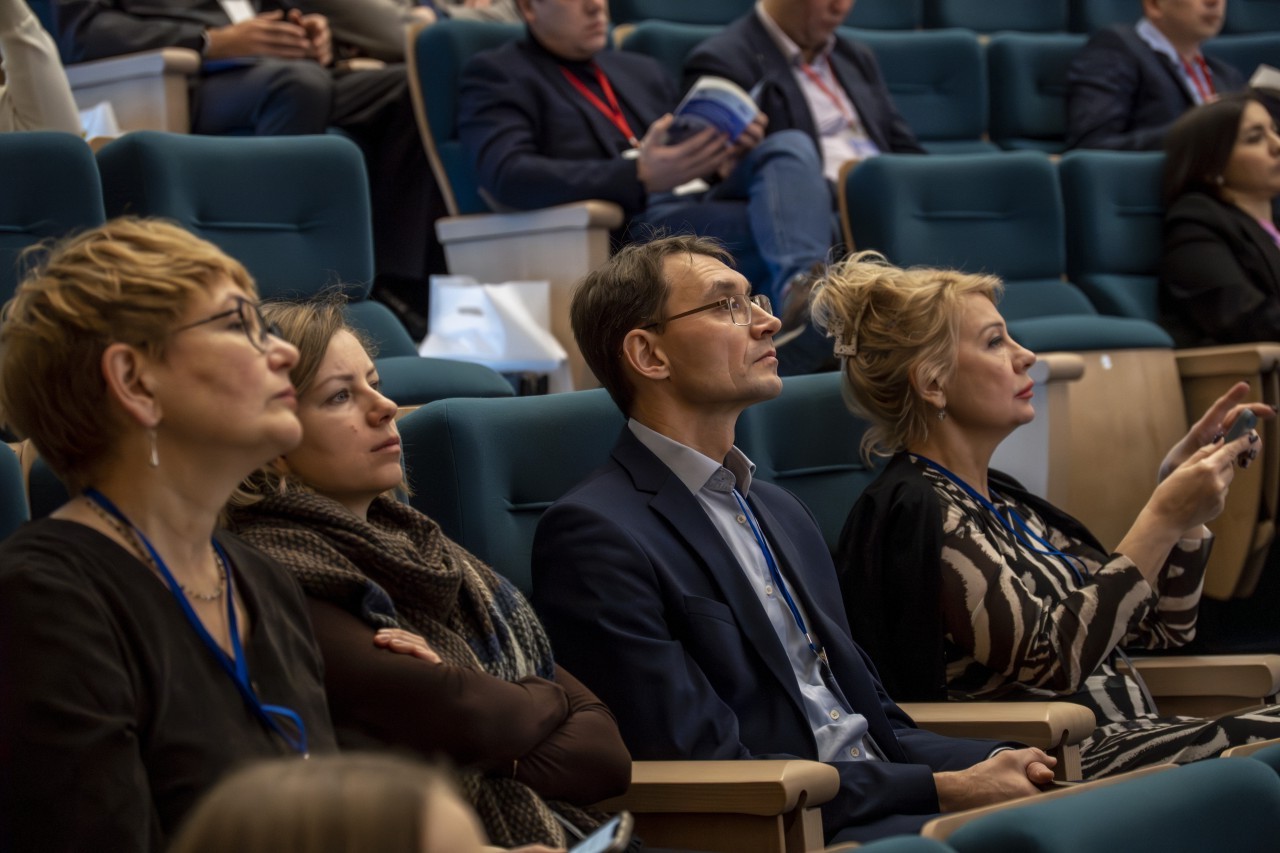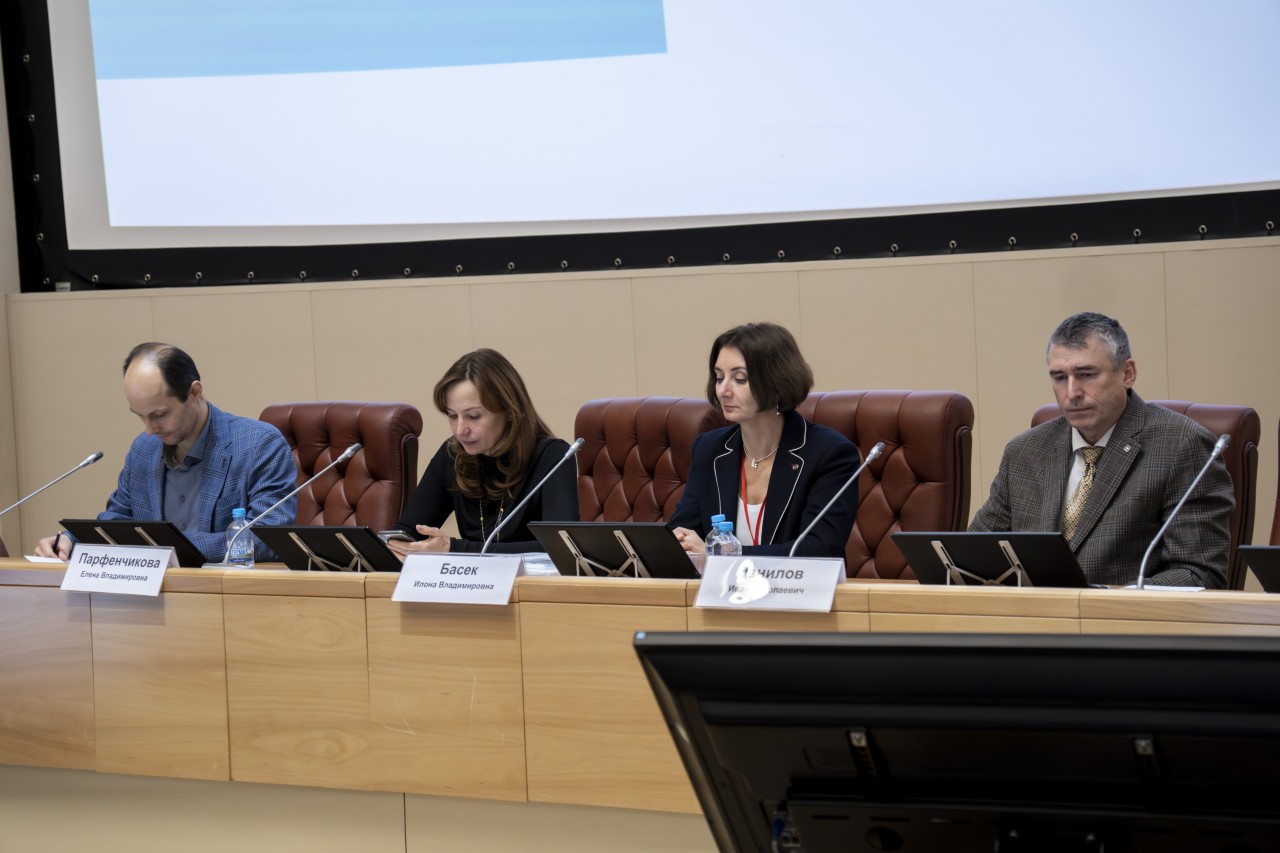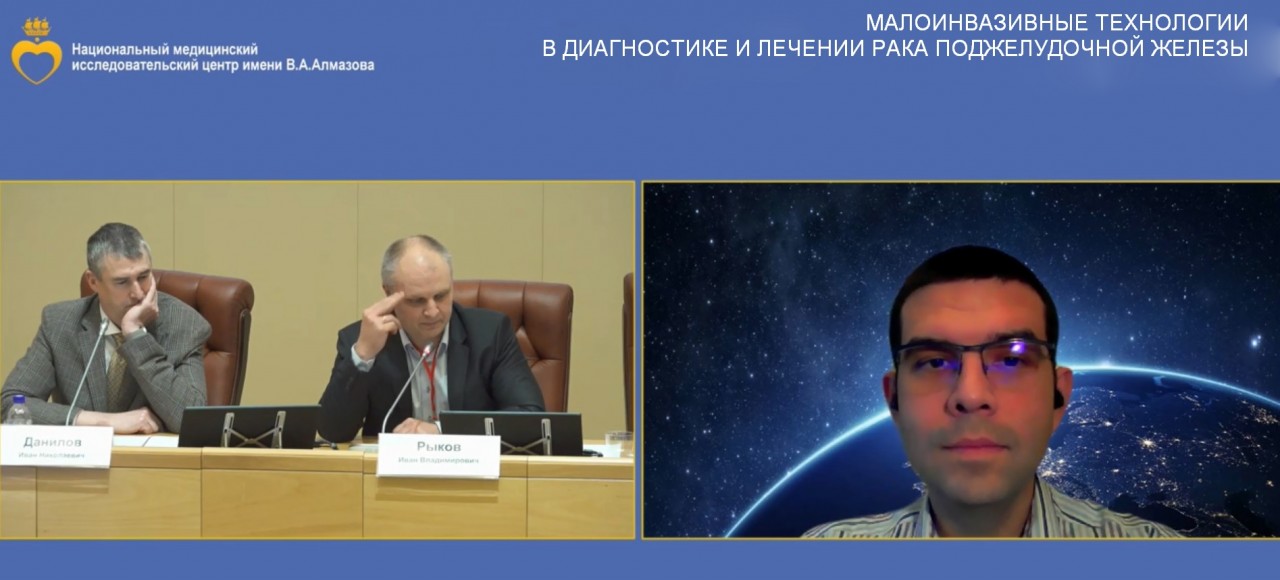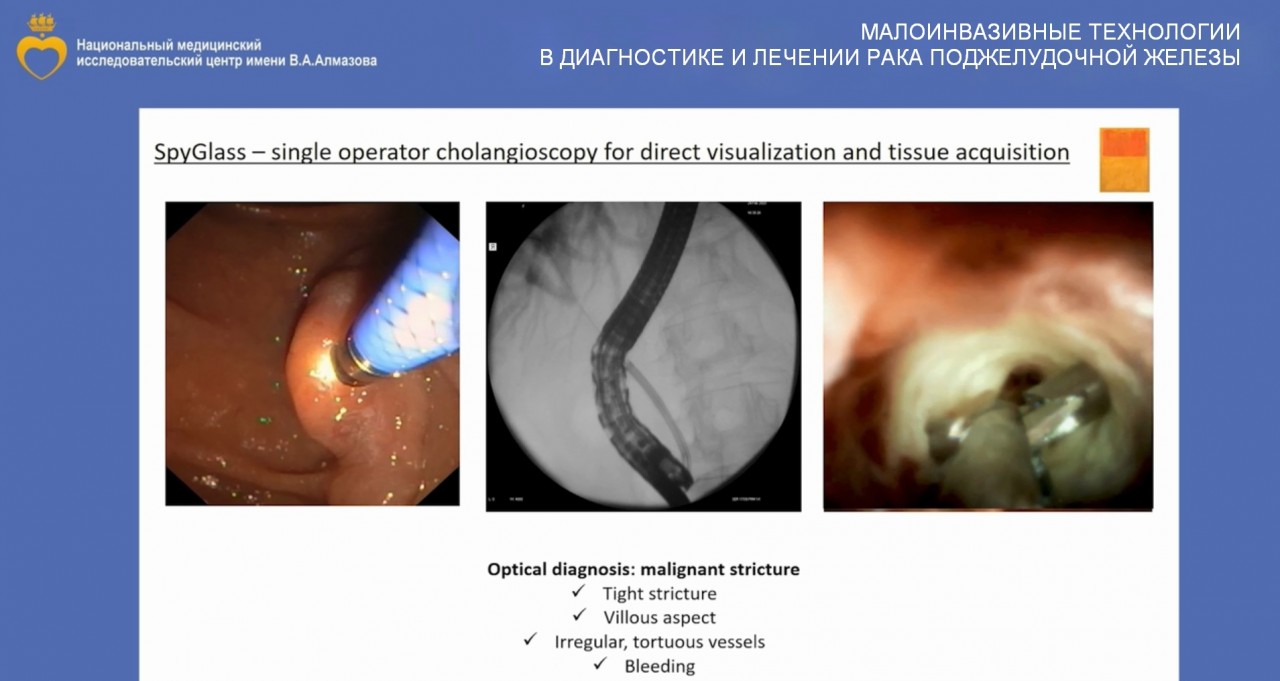
On 8 December 2023, Almazov Centre hosted the Conference on Minimally Invasive Technologies in the Diagnosis and Treatment of Pancreatic Cancer. The event touched on the most relevant aspects of innovative non-invasive and minimally invasive technologies in the diagnosis of pancreatic cancer, as well as in the preoperative morphological diagnosis of pancreatic biliary neoplasms. This interdisciplinary conference brought together surgeons, oncologists, endoscopists, radiologists, morphologists and other specialists working in this field.

Experts discussed the possibilities of modern morphology and molecular biology in the assessment of pancreatic material obtained using minimally invasive technologies in the complicated course of pancreaticobiliary cancers. During the conference, participants also discussed continuity and multidisciplinary approach in the management of patients with this disease. After each presentation, the audience had the opportunity to ask questions. Many of the issues raised at the conference were the subject of lively discussion, leading to the formulation of tasks to further improve interdisciplinary interaction in the use of minimally invasive technologies in patients with pancreaticobiliary tumors.
The event included three OR demonstrations of EUS (endoscopic ultrasound), EUS-guided through-the-needle forceps biopsy of a cystic pancreatic tumor, fine needle aspiration puncture of a hepatic duct neoplasm and transpapillary cholangioscopy-guided bile duct biopsy. All demonstrated techniques are minimally invasive and, using modern technology and instrumentation, allow material to be obtained for morphological study with high accuracy.


The conference was held in a hybrid format. There were more than 270 online participants and 124 onsite delegates, including surgeons, oncologists, endoscopists, morphologists and interventional radiologists. The geography of participants included not only Russia but also other countries such as Belarus, Moldova, Kazakhstan, Ukraine, Germany and Kyrgyzstan.


The interest of the professional community not only underlines the relevance of minimally invasive technologies in the diagnosis and treatment of pancreatic cancer, but also contributes to the development of effective multidisciplinary interaction.
The conference was held as part of the programme of the WCRC for Personalized Medicine, with support from the Russian Ministry of Science and Higher Education.
